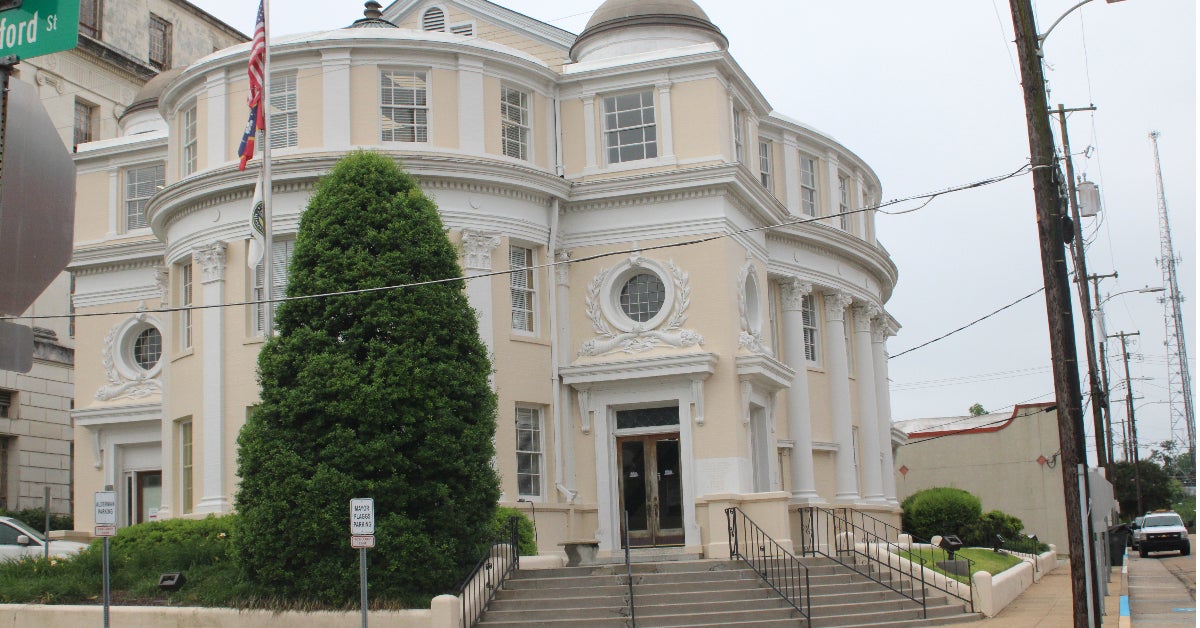City’s sewage treatment plant gets top state award for its performance
Published 12:00 am Tuesday, December 26, 2000
Rosemary Bagby, director of the Vicksburg Water Pollution Control Facility, stands in front of a trickling filter, one of the steps waste water goes through before it is let into the Mississippi River. (The Vicksburg Post/PAT SHANNAHAN)
Thanks to a few dauntless city employees with their minds in the sewer, Vicksburg has gained a sterling reputation for the quality of its waste.
Call it what you want: sewage treatment, waste water management, or the current favorite, water pollution control. The fact is, when it comes to handling human byproducts safely and efficiently, Vicksburg does more with less than almost anyone.
That fact was recognized recently, when the city received the Mississippi Water Environment Association’s top award, the George W. Burke Facility Safety Award.
Handed out only once every three years, the award recognized the plant’s employee safety record, its comprehensive safety plan and its employee safety training.
And by the time city employees get through, Vicksburg’s 4 million gallons of daily waste is some of the cleanest, purest, least offensive sewage in the Magnolia State.
With a record of no environmental violations since it opened a quarter-century ago, the sewer facility in 1995 garnered the Plant of the Year award.
“Vicksburg has one of the better-run waste water treatment facilities in the state,” said Phil Bass, director of the Mississippi Department of Environmental Quality. “It’s not a new plant by any stretch, but it’s well-kept and held together by a lot of technological expertise.”
One of those responsible for that reputation is plant director Rosemary Bagby. A self-proclaimed environmentalist with a degree in medical technology, she’s worked at the plant since it opened in 1973 and says there’s nothing else she’d rather do.
She started out doing blood work at the Street Clinic, but went to work at the sewage plant just three months after it opened, to the horror of friends and family.
“We’re the brunt of a lot of jokes,” she admits. “Your number two business is our number one business, that kind of thing. You really have to have a good sense of humor to hang with this.”
All kidding aside, though, reducing the toxins flowing from Vicksburg into the Mississippi River is something Bagby sees as deadly serious.
Sewage treatment problems can cause disease epidemics and bring economic development to a screeching halt, besides making a huge mess. And every little bit that can be done to make the world a cleaner place is worth the effort, she said.
“It was interesting to me when I got started, and it still is,” she said. “I’m not so jaded. Even the guys that don’t come here die-hard environmentalists, I con them into it before it’s over.”
Bagby was recently inducted into the Water Environment Association’s Quarter Century Operator’s Club, was one of the first women to serve on the WEA board of directors and was a charter member of the whimsical Select Society of Sanitary Sludge Shovelers.
She spearheaded a plan last year to turn the city’s solid waste into fertilizer for soybeans, which is being studied by waste treatment authorities from across the state and nation.
Biosolids, as she calls the product, have successfully produced growth rates far beyond what chemical fertilizers can deliver. And when injected below the soil’s surface, they can provide fertilizer’s benefits without any of the negatives of chemicals, she said.
The raw sewage that courses through the city’s facility every day is barely half of the unit’s full capacity. But it’s plenty to cause an unpleasant aroma on days when the wind is wrong or mechanical problems stir things up.
“You maybe get used to it somewhat,” Bagby said. “But no, you still notice it.”
The vintage 1970s plant lags well behind the newest technology, and Bagby said sewage treatment is never in the front of officials’ minds at budget time. A 1996 expansion of the laboratory during Joe Loviza’s administration was the last major upgrade.
And it was badly needed, she said, with the six tests technicians perform on each batch of treated water, and hundreds of analyses for the solid sludge going on every hour of every day.
“This stuff goes through more tests than your tap water,” Bagby said.
The plant puts out only a fraction of the pollutants that are allowed by federal regulations, and Bagby said she plans to keep it that way.
“If we put out less, for those people who aren’t doing their part, it gives them more leeway,” she said.
Sam Habeeb, Vicksburg’s South Ward alderman, claimed the award on behalf of the facility at the MWEA banquet in Jackson.
Habeeb said the professionals at the water pollution control center may not be as visible as other city employees, like police officers, firefighters or street workers.
“It’s really one of those invisible services that the city provides,” Habeeb said. “That’s an area that could potentially expose the city to huge environmental liabilities and problems, so it’s nice to know there are people handling it who are competent and professional.”





